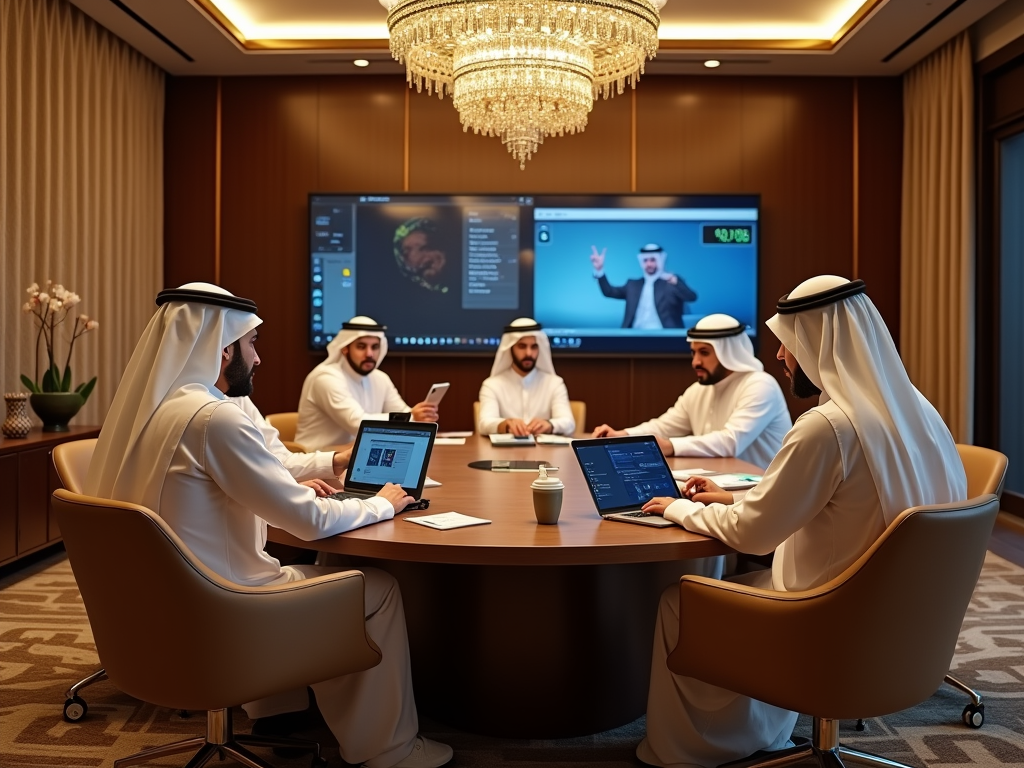As the world adapts to new realities, remote working has become a prominent feature of the modern workplace, especially in vibrant cities like Dubai. This article explores how remote working trends are evolving in Dubai, shaping the future of work for businesses and employees alike. The impact of technology, the emergence of hybrid work models, and the cultural shifts are all contributing to a redefined professional landscape within the UAE. As we delve into these dynamics, we’ll address the key factors influencing remote work trends and their implications for Dubai’s economy and workforce.
The Rise of Remote Work in Dubai

Dubai has witnessed a significant rise in remote work, driven by technological advancements and a shift in workplace culture. Initially catalyzed by the COVID-19 pandemic, the preference for flexibility has persisted even as restrictions eased. Workers appreciate the balance it offers between professional and personal lives, leading to increased productivity and job satisfaction. Here are some critical aspects highlighting the rise of remote work in Dubai:
- A growing number of businesses are adopting flexible working arrangements.
- Increased demand for digital collaboration tools.
- Shift towards a results-driven approach rather than hours worked.
- Cultural acceptance of remote work as a viable employment model.
- Supportive government policies and initiatives promoting telecommuting.
Technological Innovations Fueling Remote Work

Technology is at the heart of the remote work revolution, enabling employees to stay connected and productive from virtually anywhere. In Dubai, the integration of cutting-edge tools has streamlined communication and collaboration, making remote work not only feasible but efficient. Some of the most notable technological trends reshaping the remote work landscape include:
- Cloud Computing: This technology allows for seamless access to files and applications, facilitating collaborative efforts irrespective of location.
- Virtual Reality (VR) and Augmented Reality (AR): Companies are beginning to incorporate VR and AR for remote meetings, providing immersive experiences that enhance team interactions.
- Remote Management Tools: Platforms like Asana and Trello help organizations manage projects and teams effectively, ensuring productivity remains high.
- Integrated Communication Platforms: Tools such as Slack and Microsoft Teams not only enhance communication but also help maintain company culture in a virtual environment.
- AI-Powered Analytics: Many organizations are leveraging AI to analyze performance metrics and optimize their remote work strategies.
The Hybrid Work Model: A New Standard
As Dubai firms embrace remote work, the hybrid model has emerged as a popular arrangement. This model combines remote and in-office work, offering flexibility while maintaining a sense of community. The benefits of the hybrid work model include:
- Enhanced flexibility for employees, allowing them to choose when and where they want to work.
- Improved employee retention rates due to increased work-life balance.
- Access to a broader talent pool as geographical constraints diminish.
- Encouragement of in-person collaboration for creativity and team building.
- Cost savings for businesses as physical office spaces can be downsized.
Government Support and Regulatory Frameworks
In recognizing the shifting labor market, the government of Dubai has proactively supported remote work initiatives. Policies aimed at creating a conducive environment for telecommuting are on the rise. Some important measures include:
- Establishment of the Dubai Remote Work Visa, allowing expatriates to live and work remotely.
- Digital infrastructure improvements to facilitate high-speed internet access across the city.
- Tax incentives for businesses that adopt flexible work arrangements.
- Training programs aimed at upskilling workers for digital roles in a remote setting.
- Partnerships with private organizations to ensure a seamless transition to remote work.
Conclusion
The future of work in Dubai is shifting towards a landscape characterized by remote and hybrid work models, empowered by technology and governmental support. As businesses adapt to these new norms, they can harness the benefits of a flexible working environment, fostering a culture of productivity and innovation. The ongoing trends indicate a promising future where remote work not only becomes standard practice but also bolsters Dubai’s position as a global business hub. In conclusion, the city is well-poised to lead the way in shaping remote working trends, enhancing both employee satisfaction and organizational efficiency.
Frequently Asked Questions
1. What are the primary benefits of remote work in Dubai?
The primary benefits of remote work in Dubai include improved work-life balance, increased productivity, and access to a broader talent pool without geographical restrictions.
2. How is technology impacting remote work trends?
Technology is significantly enhancing remote work trends through cloud computing, communication platforms, project management tools, and AI analytics, facilitating seamless collaboration and productivity.
3. What is the hybrid work model?
The hybrid work model is a flexible arrangement that combines remote and in-office work, allowing employees to choose their work environment while enjoying the benefits of both settings.
4. Are there government initiatives supporting remote work in Dubai?
Yes, the Dubai government has introduced initiatives such as the Dubai Remote Work Visa and enhanced digital infrastructure to support and promote remote workforce opportunities.
5. How can businesses best adapt to this remote work trend?
Businesses can adapt by investing in technology, creating clear communication channels, fostering a results-driven culture, and implementing flexible work policies that prioritize employee well-being.


